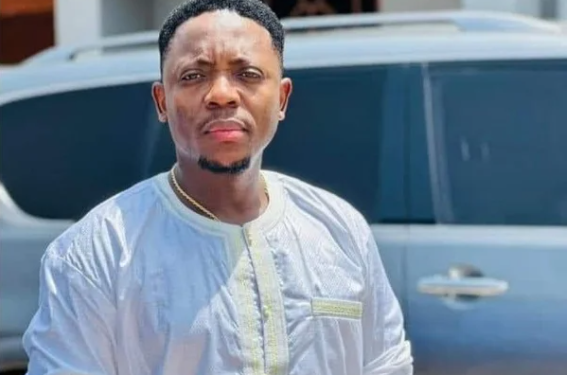By Sulaiman Aruna Sesay
Sierra Leone’s political stability is facing a severe test as Kadiru Kaikai, a prominent figure within the country’s political landscape, has issued threats of violence if he does not become president in 2028. The Sierra Leone People’s Party (SLPP) has, rightfully, condemned these remarks, stating that such statements are detrimental to democracy and could lead to significant instability in the country.
Kadiru Kaikai is a well-known name in the SLPP but has become desperately anxious for power come 2028. After a list of names surfacing the media quite recently to replace the current President, His Excellency Dr. Julius Maada Bio and unfortunately for him, his name was not in the list of candidates. Since then, he has been a vocal critic of the party and has often made statements suggesting that he will one day become president of Sierra Leone. However, his most recent video, which has been shared widely on social media, has taken his rhetoric to a new level.
In the video, Kaikai can be heard saying that he is ready to “sacrifice” everything to become president, and that if he is not successful in doing so, he will resort to war brutal than the previous one we last had in Sierra Leone. Making reference to the previous war indirectly shows that he was happy and so desire to bring another war come 2028 if he does not achieve his dream. Listening to his video saying, he has already budgeted to rage war in Sierra Leone, left many with the question if really he is a good Sierra Leonean, “Why can’t he invest that money in developmental programmes?” I beg to say, such individual does not fit to rule Sierra Leone.
These remarks have understandably caused alarm among many Sierra Leoneans, who remember all too well the brutal civil war that ravaged the country between 1991 and 2002. The war, which was characterised by extreme violence and mass atrocities, left an estimated 50,000 people dead and countless more injured or displaced.
Kaikai’s remarks have been condemned by a wide range of civil society organizations and political parties in Sierra Leone. Many have called for him to be prosecuted for incitement to violence, and for the government to take action to prevent the kind of instability that such threats can engender.
The Sierra Leone Police has issued a press release of his arrest. Considering the intensity of the statement and the national safety and security of Sierra Leone, the Criminal Investigation Department (CID) has arrested him to answer further questions. Even though he has been arrested, the issue has created some amount of fear among the citizens of Sierra Leone.
What is needed, therefore, is a concerted effort to combat the root causes of political violence and instability. This requires a commitment to democratic values, the rule of law, and social justice, as well as a willingness to engage in constructive dialogue and peaceful conflict resolution.
Sierra Leone has made significant strides in all these areas since the end of the civil war, but much work remains to be done. The government must remain vigilant in protecting its citizens from violence and ensuring that the democratic process is free and fair. The opposition, meanwhile, must work constructively within the system to advance its political agenda, rather than resorting to threats or violence.
Ultimately, the fate of Sierra Leone’s democracy rests in the hands of its people. It is up to all Sierra Leoneans to reject the politics of fear and division and to work together for a peaceful and prosperous future.













